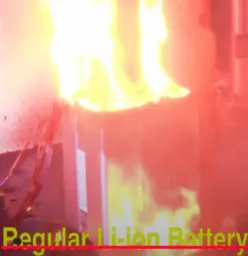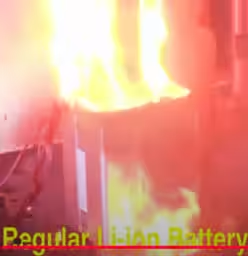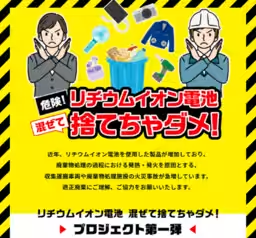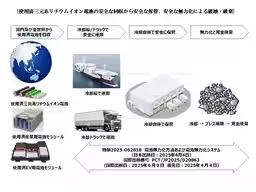

E-Cubed Goals and Waseda University Unveil Groundbreaking Lithium-ion Battery Disposal Technology
Groundbreaking Technology for Lithium-ion Battery Disposal
E-Cubed Goals, represented by CEO Toshiya Hamazaki and based in Shibuya, Tokyo, has announced a significant development in collaboration with Hiroshi Onoda's research lab at Waseda University's Graduate School of Environment and Energy. They have successfully established a groundbreaking technology for the neutralization and complete disposal of ternary lithium-ion batteries, which have become a pressing global issue.
Overview of the Announcement
Ternary lithium-ion batteries are widely used in electric vehicles and smartphones due to their high energy density; however, their safe disposal has emerged as a worldwide challenge. The risk of explosion from residual energy poses a major barrier to their recycling and disposal. Aiming to resolve this challenge, E-Cubed Goals commenced research in early 2024, focusing on a method of neutralization through cooling.
By June 2024, they developed optimal temperature parameters that enabled the safe neutralization of these batteries. It was proven that a neutralized battery can undergo a typically explosive process known as 'puncture destruction' without detonating, thus allowing for safe crushing or melting. This achievement was verified in March 2025 through joint experiments with Waseda University, confirming the viability of the developed technology.
This new technology facilitates a supply chain for the safe collection, transportation, storage, and disposal of used ternary lithium-ion batteries. The process involves cooling the used batteries to a specific temperature before subjecting them to press destruction, ultimately leading to melting or crushing. This method effectively eliminates explosion risks, enabling cost-effective and safe disposal.
Features of the Technology
This innovative technology offers several advantages that tackle previous disposal challenges and enable sustainable operations:
- - Process Flow: A simple and safe sequence of cooling, press destruction, and complete disposal.
- - Safety: Ensures that no explosions occur during destruction, protecting workers, facilities, and the environment.
- - Cost-Effectiveness: Utilizing existing equipment reduces barriers to implementation.
- - Operational Model: A comprehensive model for safe collection, transportation, storage, and disposal is now established.
Challenges and Importance
Ternary lithium-ion batteries are crucial energy sources for laptops, smartphones, and electric vehicles, yet millions of tons of discarded batteries each year go untreated, leading to environmental hazards through landfilling. The battery’s dangerous characteristics include a high explosion risk during disposal that can reach temperatures exceeding 3000°C, a limit that most processing facilities (usually around 800°C) cannot handle. In Tokyo, initiatives like the 'Do Not Dispose of Lithium-ion Batteries' project aim to raise awareness among residents.
While trials for recycling rare metals and earth elements used in ternary lithium-ion batteries are expanding, practical recycling and upcycling solutions for these batteries remain absent in the market. The lack of processing infrastructure, costs, and technological challenges hinder progress. Furthermore, the ethical concerns regarding materials like cobalt raise the spotlight on the need for safe disposal techniques, drawing global attention.
Timeline of Validation
- - Concept (2023) → Verification Experiment (June 2024) → Reproduction of Verification (March 2025) → Establishment of Technology → Invention Completion.
Contribution to Sustainability
This technology marks a departure from traditional recycling-based waste processing by enabling disposal without necessitating recycling, paving the way for a sustainable battery society. Japanese and international patents were filed for this technology in April 2025. Looking ahead, there are plans for potential open-source applications and collaborations with administrations, industries, and research institutions worldwide to promote global social implementation.
Contact Information for Inquiries
E-Cubed Goals Inc.
Head Office: 3F Forestgate Daikanyama MAIN Building, 20-23 Daikanyama-cho, Shibuya, Tokyo
Contact Person: Yoshio Maruko
Email: [email protected]
Website: www.ecubedgoals.com







Topics Other)










【About Using Articles】
You can freely use the title and article content by linking to the page where the article is posted.
※ Images cannot be used.
【About Links】
Links are free to use.